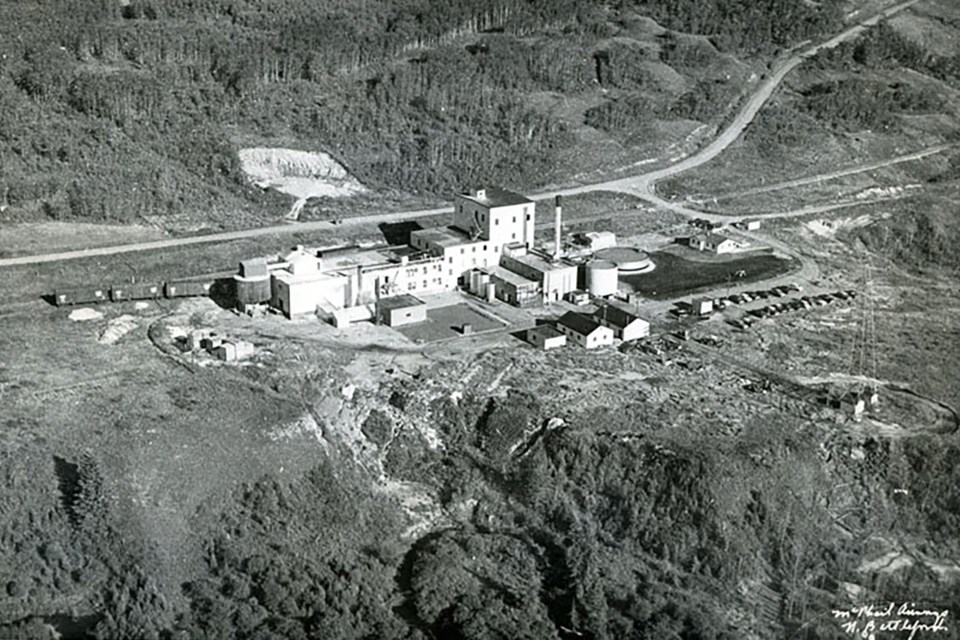LINDBERGH – This winter, a very familiar sight is missing from the landscape in the Lindbergh valley, close to the North Saskatchewan River.
For the first time in 74 years, there is no huge plume of steam rising into the frosty air from the major industrial facility that has harvested ‘The Salt of the Earth’ from a deposit 2,600 feet below the earth’s surface, to be processed into everything from the salt we sprinkle on our dinner to the blocks of fused salt for livestock to the salt that keeps our highways free of ice in winter.
Highway 646, which parallels the plant before heading uphill and east toward Frog Lake and Heinsburg, is one of those highways, and it is no longer being travelled by the plant’s many employees coming to work each day or the countless trucks that have transported the plant’s finished products to market ever since the CN rail line ceased operation in the early 1990s.
Across the creek that borders the Lindbergh works on the west side, the once bustling company town of Riverview is quiet now, its homes largely privately owned, the Windsor Club curling rink and outdoor skating rink that once were a hub of activity long closed and falling into disrepair.
Closed on Aug. 1 of this year, the Windsor Salt Plant, owned by Morton Salt of Chicago is no longer the hub of activity that has been a major employer for generations of area residents ever since it was built in 1948 by the Alberta Salt Company, at the beginning producing 125 tons of salt daily and employing 40 workers. Sold to the brand new Canadian Salt Company in 1951, the plant’s history was one of continuous expansion, doubling production by 1963 and its physical size by 1966.
In 1972, production increased to 360 tons per day and five years later the installation of a new furnace raised the production of fused salt blocks to 200 tons per day, with the plant at that time having 100 full-time employees.
Head of communications and engagement with Morton Salt, Brett Gregorka confirmed "The facility stopped producing in August." He also noted on Dec. 20 via email that "As of this writing, the plant has not been sold."
Terri Hampson, president of the Elk Point and District Chamber of Commerce, of which the salt plant was a long-time member and supporter, calls the closure of the major industry “the end of an era. We were fortunate to have the salt plant employ many people and families in our community over the many years. It will surely be missed."
“I remember eight years ago when I came here for the first time and came down the hill and around the corner, and saw the big WINDSOR SALT on the roof, I was like, ‘Wait… what... that's in our own backyard? The box of salt on my table is the same name on the roof! Very cool!’ It will leave a big hole in our community, but one thing is for sure, we are a resilient community and we will persevere.”
Elk Point Mayor Parrish Tung also feels the loss.
The “Lindbergh salt plant had been a major employer for our region. I would say that they contributed a lot to the growth of Elk Point. I can safely say that all of us in town know friends or neighbours who have been their employees.
“Of course, it is sad to see the end of an era. However, we have to be positive that our economy will go through a metamorphosis and will continue to grow and provide new opportunities to our present and future residents.”
Whether the now-closed salt production facility will provide some of those opportunities is still unknown at this time, but the possibility is there for a long-time part of the community that came about largely by accident, when a long-ago search for oil and gas deposits found the hidden treasure of a massive salt deposit as well.



